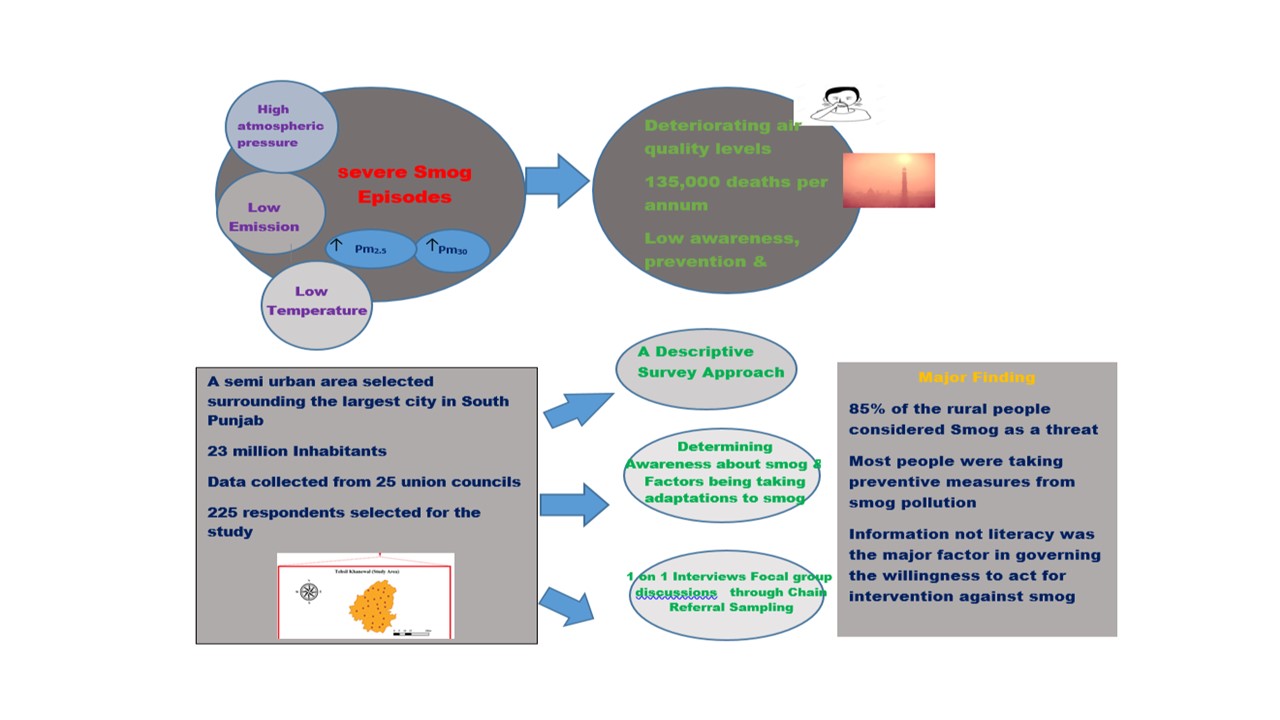
Pakistan, in recent years, has been at the forefront of the heavily striking havoc of smog. In light of the growing number of smog episodes, it is crucial to gain insight into the community's perception and to observe the decision-making phenomenon of the community's preventive behavior. This study is one of its kind to determine awareness and factors behind taking adaptive measures to smog in rural areas of Pakistan. A survey was carried out in Khanewal district of South Punjab. The study's main findings depicted that a considerable proportion (85%) of the people in the villages have moderate to a good level of understanding regarding smog pollution. Moreover, around 84% of the people in the villages were considering smog to be a moderate to very severe problem. It was observed that people in the villages of south Punjab were equipped with the same knowledge and concern level from smog as some of the improved and developed people residing in the cities. About 44% of respondents were using facemasks while 32% of the participants had reduced their outdoor activities as potential protection measures against smog. The study implies that the environment department, alongside disaster management authorities, must collaborate with the local pro smog adopters to develop effective and efficient smog control policies to lessen the effect of coming smog episodes in the rural areas of Pakistan.Pakistan, in recent years, has been at the forefront of the heavily striking havoc of smog. In light of the growing number of smog episodes, it is crucial to gain insight into the community's perception and to observe the decision-making phenomenon of the community's preventive behavior. This study is one of its kind to determine awareness and factors behind taking adaptive measures to smog in rural areas of Pakistan. A survey was carried out in Khanewal district of South Punjab. The study's main findings depicted that a considerable proportion (85%) of the people in the villages have moderate to a good level of understanding regarding smog pollution. Moreover, around 84% of the people in the villages were considering smog to be a moderate to very severe problem. It was observed that people in the villages of south Punjab were equipped with the same knowledge and concern level from smog as some of the improved and developed people residing in the cities. About 44% of respondents were using facemasks while 32% of the participants had reduced their outdoor activities as potential protection measures against smog. The study implies that the environment department, alongside disaster management authorities, must collaborate with the local pro smog adopters to develop effective and efficient smog control policies to lessen the effect of coming smog episodes in the rural areas of Pakistan.
Total file downloads: 19